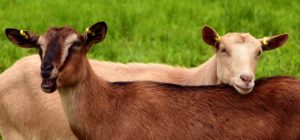The people of Kenya practice mixed farming, and as such, every farm has some form of livestock! The benefits of livestock include improved nutrition for the family, manure for the crops, and additional income the animals themselves (from their meat, milk, eggs, skin, and hair). What, therefore, are the prices for common livestock in Kenya?
How much does a bull cost in Kenya
- When pricing their bulls, farmers often consider how much they spend on them from the time they are born or purchased. For a bull to reach its optimum weight, it must be fed properly so that it grows enough muscle, bone, and fat.
- The breed of the bull is also a major consideration. Local breeds need less capital to purchase, are readily available and require less expenditure and training. Imported breeds, however, are not readily available, and need more money for maintenance and specialized care. Local breeds include the Boran and Sahiwal, and imported (pure) breeds include Hereford and Charolais.
- The Sahiwal, a breed of zebu cattle, thrives well in Kenya and is a popular dual-purpose animal. As such, a mature pure breed Sahiwal bull may fetch up to Ksh 120,000, a one-year-old bull Ksh 60,000 and a heifer Ksh 60,000.
How much does a goat cost in Kenya

- When considering how much you want to spend on a goat, think about what you will use it for. Do you want a goat that can give you both meat and milk? How long do you intend to keep it for? Are you planning to increase the number of goats you have over time? What breed are you looking at? All these considerations will affect your decision when purchasing a goat.
- In Kenya, the most common goat breeds are Galla (for milk and meat), Saanen (for milk), Small East African Goat (for meat), Toggenburg (for milk), Alpine (for milk) and Boer (for meat). Currently, many Kenyan farmers are opting for milk goats or dual-purpose goats, as goat milk is highly nutritious and is an excellent source of income.
- A Small East African goat goes for around Ksh 6000 (or lower depending on the season and availability). The Galla goat goes for around Ksh 10000 to 15000. The Alpine goat, however, is a little pricier, at Ksh 20000 for a kid, and 25000 for an in-calf doe. Lastly, a Boer goat (one of the higher meat producers) goes for up to Ksh 35,000.
How much does a sheep cost in Kenya
- Currently, the most common sheep breeds in Kenya are the Dorper and the Maasai sheep. Both breeds are hardy and adapt easily to the climatic conditions in Kenya. The Dorper, however, offers a higher return to the farmer, as it puts on weight faster.
- In the local markets, a cross breed between the Dorper and the Maasai sheep will fetch anything from Ksh 4000 to 8500 depending on the availability of sheep, and the season. A purebred Dorper will fetch at least Ksh 10,000 for an ewe, and 6000 for a lamb. Breeders should put aside between Ksh 25,000 and 40,000 for a purebred Dorper ram.
- From time to time, the Kenya Meat Commission buys lambs from farmers, at a rate of Ksh 280 per kg for lambs weighing between 10 and 25 kilograms
How much does a chicken cost in Kenya
- Many people in Kenya prefer to eat the Kienyeji (local) chicken rather than the hybrid (broiler) chicken, as the Kienyeji chicken is tastier, leaner and more nutritious. The local chickens are also much easier to rear.
- The demand for Kienyeji chicken has greatly influenced its prices on the market. A Kienyeji chick goes for between Ksh 100 and 200 depending on the age, while a fully-grown bird goes for Ksh 700-1500. In contrast, the broiler chicken goes for Ksh 500-800 in the local markets. Note that the price depends on the weight of the bird.
- Currently, there is a new breed on the market, called the KARI improved chicken, which is a crossbreed of the broiler and the Kienyeji chicken. A KARI improved bird goes for Ksh 700-1000 in the local markets.
Considering how good the prices are for livestock in Kenya, every farmer should consider having at least one or two animals or birds alongside their crops, as an additional source of income.
